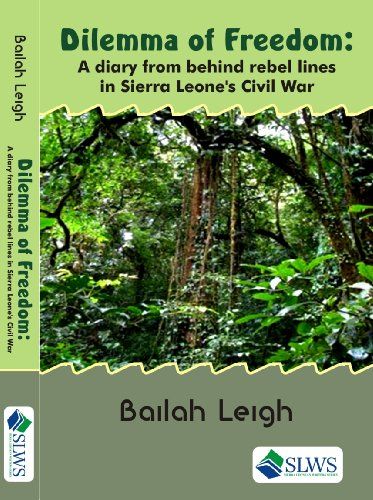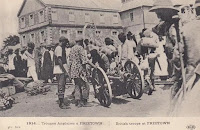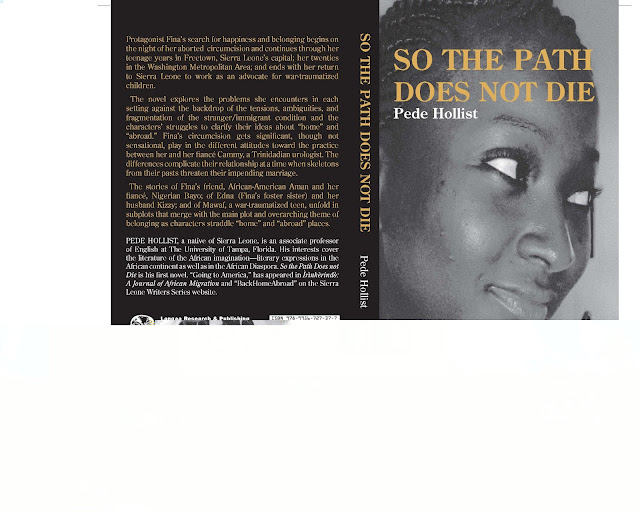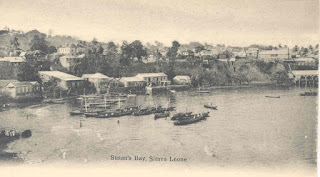Vitabu Reads | Dilemma of Freedom: A diary from behind enemy lines in Sierra Leone's civil war
The harrowing events of May 25, 1997 in Freetown, Sierra Leone fell far short of the lofty ideals of 25 May 1963, when the Organization of African Unity (OAU) was founded.
More than 30 years earlier, the OAU had been set up to support the work conducted by freedom fighters, and improve living standards across member states. At the ‘63 meeting in Addis Ababa, Africa Freedom Day was renamed Africa Liberation Day.
According to records, the renamed celebration of Africa Day continued to be celebrated on May 25 in respect to the formation of the OAU. Haile Selassie reportedly exclaimed, "May this convention of union last 1,000 years."
By May 1997,
the union was just over 30 years old.
That was the day Bailah Leigh’s life took an ominous turn. The German-trained obstetrician and gynecologist, who’d returned to his native Sierra Leone in 1978, was midway through his career when Sierra Leone was upended by yet another military coup.
Coup d’états had been a part of Sierra Leonean life for decades and people were almost inured to how power swung from putsch to putsch and back to civilian governments.
By March 1998, Leigh was under arrest and detained. He remained a prisoner at Pademba Road Prisons until the jail break on January 6, 1999. A few weeks later he was behind enemy lines, where his skills helped provide health care for women and children.
In a book review written by Lansana Gberie, he describes Leigh’s story as dry, spare, unaffected.
Leigh's diary covers more than 800 days.
That was the day Bailah Leigh’s life took an ominous turn. The German-trained obstetrician and gynecologist, who’d returned to his native Sierra Leone in 1978, was midway through his career when Sierra Leone was upended by yet another military coup.
Coup d’états had been a part of Sierra Leonean life for decades and people were almost inured to how power swung from putsch to putsch and back to civilian governments.
"Twenty years ago, Sierra Leoneans woke up on Africa Day to find themselves under yet another junta rule." wrote Othams Kabia in his Africa Day wall post on Facebook.
"Major Johnny Paul Koroma went on to bring the Revolutionary United Front (RUF) ‘rebels’ into a coalition of sorts but forgot to order them to leave their banditry at the door. Extreme violence was visited on the people and carried on until Nigerian-led forces stopped the madness and restored democracy ten months later. The genie let out of the bottle in 1992 by (the) National Provisional Ruling Council (NPRC), had probably encouraged Corporal Gborie and his friends to have a go.
The Armed Forces Revolutionary Council (AFRC) threw out an elected government, compromised progress towards a peace settlement, and plunged the country into depths of depravity. Scathingly referring to the AFRC as “After Freedom Rubbish Cam” (after freedom came rubbish) was effectively a statement on the AFRC and the NPRC as well as a lament to the fall of democracy," Kabia sounded.
By March 1998, Leigh was under arrest and detained. He remained a prisoner at Pademba Road Prisons until the jail break on January 6, 1999. A few weeks later he was behind enemy lines, where his skills helped provide health care for women and children.
In a book review written by Lansana Gberie, he describes Leigh’s story as dry, spare, unaffected.
“Dr. Leigh is not interested in analysis,” Gberie added. “He is simply recording what he sees around him, his own fears and neurosis: nerves appear to be the subject of his deeply moving record.”
Leigh's diary covers more than 800 days.
"May 25 is probably a day Sierra Leoneans should reflect on and take lessons forward," added Kabia "On this day in 1963, Sierra Leone was one of the founding nations of
the OAU, now the African Union (AU). On
‘Africa Day’ in 1997, a not very happy Corporal and his mates threw out
an elected government, broke an army Major out of jail, and got him to
head a junta," he said.




Comments
Post a Comment